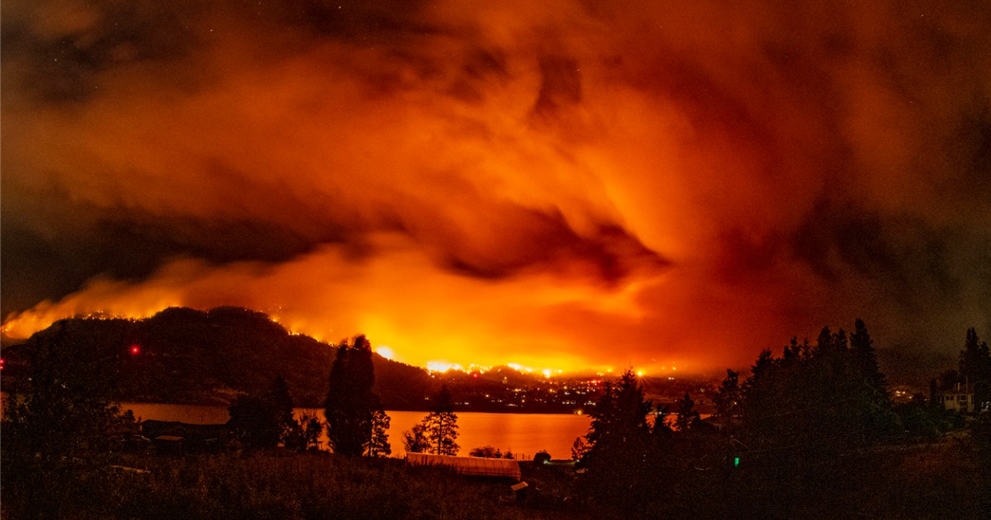Prepare Your Dental Practice for a Perpetual Wildfire Season
June 10, 2024
Wildfires are now a year-round phenomenon. TDIC urges dentists to take time to prepare their practice for wildfires and other emergencies by backing up records, securing sufficient insurance coverage and making an escape plan.

With the understanding that there are countless aspects of practice demanding dentists’ attention today, The Dentists Insurance Company urges dentists to take time to prepare for the upcoming wildfire season as well as the possibility of year-round wildfire threats. Take control of the factors you can to prepare for, respond to and recover from potential fire risks.
According to the U.S. Department of Agriculture, the number, severity and overall size of wildfires in recent decades has increased across much of the country. In February of 2024, Texas’s Smokehouse Creek Fire in 2023 burned over 1 million acres, earning it the distinction of the largest fire in Texas history and among the top 10 largest recorded fires in U.S. history. The four costliest wildfires in the U.S. have occurred since 2017, California’s Camp Fire, Tubbs Fire and Woolsey Fire and most recently, Hawaii’s 2023 Lahaina Fire. The National Fire Protection Association calculates the cost of those recent catastrophic fires at 244 human lives lost, more than 29,000 structures destroyed, and a dollar loss of over $39 billion.
Although historically the season has started in July, “It’s always wildfire season now,” former U.S. Forest Service Chief Vicki Christiansen warned in a 2019 NPR interview. “When you look nationwide, there’s not any place that we’re really at a fire season. Fire season is not an appropriate term anymore.”
Wildfires are now a year-round phenomenon due to burn conditions — winter snows are melting earlier and rain is coming later in the fall. With the growing scope of risks in mind, dentists should not wait to prepare their practices for cases of wildfire and other potential disasters, says Taiba Solaiman, senior risk management analyst at The Dentists Insurance Company. “A catastrophic event such as a wildfire can be devastating to a dental office. Being prepared will help minimize the interruption and assist with resuming patient care should a practice be affected by a wildfire,” she said.
Backing Up Records
Making sure all practice records, including patient charts and accounts receivable, are backed up often in cloud storage or an off-site location is an essential step in the preparation process, says Colette Johnson, TDIC senior claims representative. Johnson has worked with dentists who were affected by both wildfires and fires that originated within the practice.
Checking that backups are functioning as they should is also a crucial, but frequently forgotten, step. “Please verify your backups, especially backups of patient records,” Johnson cautions. “If you don’t have the technical information to know whether you have a good backup, have an IT specialist run a restore of your backup for you.”
Johnson also recommends taking videos of the interior of the practice and keeping those videos and any inventory lists in a separate location. In addition, store important documents in a fireproof safe.
Securing Sufficient Coverage
A reputable insurance carrier will have access to experts who can physically assess the damage on-site and make accurate estimates of the repair costs. These professionals can provide valuable insights and recommendations tailored to your specific situation throughout the claims process.
“To correctly calculate a claim, we don’t want to guess or assume anything without getting thorough information from experts on the ground,” explains John Busschaert, TDIC senior claims representative. The experts consulted will vary from claim to claim, depending on the severity and type of damage. Some of the experts that TDIC regularly calls on to help evaluate claims are independent claims adjusters, accountants, building inspectors and trade specialists.
Making An Escape Plan
One TDIC policyholder in Paradise, California narrowly escaped the 2018 Camp Fire with his staff and a patient. Their experience underscores the importance of planning ahead to ensure the safety of anyone who may be in the practice at the time of an emergency.
TDIC advises dentists to become familiar with their community’s evacuation plans, map out several evacuation routes and take steps to make employees aware of those routes. Johnson also suggests that dentists sign up for their community’s emergency alert notification system and always keep a well-stocked emergency kit on-site. “The kit should include N95 respirator masks, which cover the nose and mouth and help keep wearers from breathing in smoke and other hazardous substances,” Johnson said.
Finding Resources and Support
TDIC’s Risk Management experts have created a wildfire resource page to aid policyholders in understanding coverage, preparing practices and safely responding to disruption caused by wildfires. Contact TDIC to review your coverage options or learn more about managing your risks. Additional information on preparing for an emergency can be found on the Federal Emergency Management Agency website.
TDIC’s Risk Management Advice Line is a benefit to TDIC policyholders. To schedule a consultation with an experienced risk management analyst, visit tdicinsurance.com/RMconsult or call 1.877.269.8844.